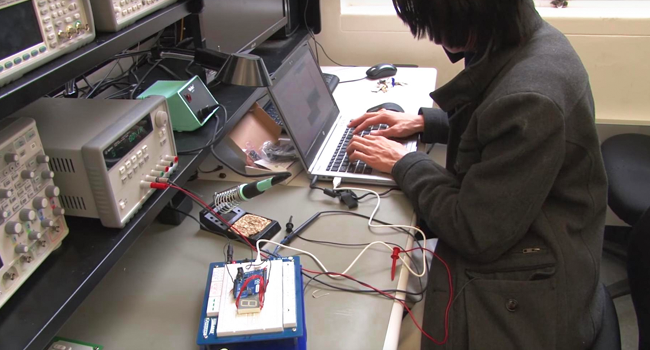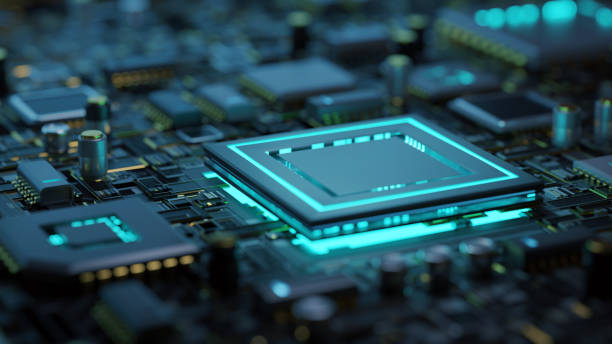Computer technology and electronics engineering are similar professional paths with identical skills, training necessities, and process obligations. Engineers in every discipline have to look at mathematics, science, engineering, and computer technology standards. Understanding the differences between every career path can help you decide which way is right for your career goals.
Let’s discuss the professional paths of computer and electronics engineering and spotlight a number of the critical differences between them.
With a developing, insatiable desire for technological improvements – both through corporations and consumers alike – the need for trained, skilled, and qualified computer engineering experts appears to recognize no boundaries. A full-size university schooling that takes four to seven years is required to become a credited computer engineer.
An individual must earn a bachelor’s degree so one can turn out to be a computer engineer. To obtain a complete education, college students should have bachelor’s degree programs, even focusing their research on either software programs or hardware specializations.
Professional certifications and credentials in computer engineering construct and balance the knowledge and abilities advanced for the duration of a degree application. The purpose of certificates is to establish technical skill ability in a sure factor of the computer engineering profession. There are three forms of computer engineering certifications: seller-unique, vendor-neutral, and general. Examples of those are Master Certification, Cisco, AAE, and MCSE.
According to the National Workforce Center for Emerging Technologies, computer engineers must have an aggregate of gentle, employability abilities further to technical knowledge. These soft competencies include critical thinking, verbal exchange, and time control. Computer engineers should be element-orientated, strong communicators, logical thinkers, analytical, and incredible hassle solvers. Computer engineering opens the door to several employment paths, from networking to systems improvement and web development to statistics technology.
These are a few motives to maintain a career in the cutting area and be marketable in any business surroundings for laptop engineering. According to Kathford University, the digital age and computer programmers have infiltrated every aspect of human life nowadays. Computer engineers make humans’s lives easy with regular innovation.

Studying PC engineering widens creativity and gives straightforward answers to a sure hassle. Computer-associated jobs are the highest in quantity in terms of availability. Astoundingly, they have a number of the highest-paying jobs in the world. Computer engineers have a splendid activity delight. The two essential reasons they’re furnished with are freedom and versatility of labor. Computer engineering is about plenty more than programming itself. It is likewise about inventing and building solutions.
The advantages of laptop engineering as a career encompass great pay, activity safety, and innovation. Computer and records generation positions pay extraordinarily well. The U.S. Bureau of Labor Statistics had an average profit of $84,580 for these positions in 2017, double the country-wide common. Those with bachelor’s degrees, including community architects, programmers, system analysts, hardware engineers, and software builders, earn between $82,000 and $104,000 annually.
Most computer engineers have splendid job protection as compared to different professions. These jobs have been on call for over 20 years, and there is no signal that this will slow down soon. Because computer systems and generation are continuously changing, and standards are constantly being updated, most individuals who work in this field ought to gain knowledge to make sure that their competencies don’t end up previous.
Scope: Electronics and Computer Engineering graduates have a wide variety of career opportunities in numerous industries, consisting of, however no longer limited to:
Information Technology (IT) Companies: As ECE graduates have expertise in electronics and computer structures, they can take on software program improvement, hardware layout, and gadget integration roles.
Semiconductor Industry: Graduates can work in designing and growing integrated circuits, microprocessors, and different semiconductor devices.
Telecommunication: ECE engineers can paint communique structures and networks’ layout, implementation, and preservation.
Embedded Systems: With know-how in embedded systems, graduates can paint in industries like automobiles, aerospace, healthcare, and consumer electronics.
Robotics and Automation: ECE engineers can contribute to improving and implementing robot structures and automation technologies.
Research and Development: Graduates can pursue research opportunities in educational institutions or research agencies, exploring contemporary technology and innovations.
Startups and Entrepreneurship: ECE graduates often have the knowledge and talents to start their era-primarily-based ventures.
The scope of Electronics and Computer Engineering is large and dynamic as technological advancements continue to create new possibilities. ECE experts are called globally due to their ability to bridge the space between electronics and computer structures, making them valuable members of diverse industries and rising technology. If you are Planning to earn money online, here are the 5 tips for making money online without investment
Advantages:
Electronics and Computer Engineering is a discipline that mixes factors of electronics engineering and PC science, focusing on the design and development of hardware and software structures. It offers several opportunities and has several blessings:
- Versatility: Electronics and Computer Engineering is a flexible field that gives a sturdy foundation in both electronics and computer science. This permits experts to work on numerous initiatives and discover multiple career paths.
- Integration of Hardware and Software: Electronics and Computer Engineering integrates the understanding of hardware and software program structures. This allows engineers to design and expand efficient and optimized structures by considering both factors concurrently.
- Innovation and Advancements: The discipline of Electronics and Computer Engineering is continuously evolving, pushed by speedy technological advancements. This offers innovation, research, and development possibilities, permitting engineers to contribute to cutting-edge technology and form the future.
- Broad Career Opportunities: Graduates in electronics and computer engineering have the right to enter various professions. They can work in industries together with telecommunications, consumer electronics, automobile, aerospace, robotics, embedded structures, software program improvement, and more.
- Demand and Job Market: Electronics and Computer Engineering experts are in excessive demand due to the growing reliance on technology in numerous sectors. This area gives suitable professional possibilities and opportunities for growth and specialization.
- Interdisciplinary Collaboration: Electronics and Computer Engineering frequently collaborate with specialists from distinctive disciplines, including electrical engineering, PC technology, and mechanical engineering. This interdisciplinary environment fosters teamwork, getting to know from diverse viewpoints, and the capability to address complicated projects.
- Transferable Skills: The talents received in electronics and computer engineering, including trouble-solving, critical questioning, analytical abilities, and technical information, are exceptionally transferable and precious in many different industries and fields.
Differences among computer engineering and digital engineering
Both will look at the equal fundamentals, but computer engineering will concentrate on computer systems. In other words, software program-controlled hardware and its interconnections. Electrical Engineering tends to focus on electricity generation and distribution.
Electronics engineering is quite near computer engineering. Both will examine microelectronics and microprocessors deeply. But in electronics engineering, you will likely skip some excessive stage software program instructions. In contrast, you will pass power electronics and vehicles in computer engineering.
Conclusion
Ultimately, electronic and computer engineering hold to force technological development, with each innovation constructing upon the remaining. As we navigate the complexities of the virtual age, the field remains at the vanguard, shaping a future with infinite opportunities.
FAQs
- Is a diploma in digital and computer engineering essential for a profession within the field?
While a degree is helpful, some success specialists have won expertise via alternative paths, including certifications and practical revel.
- How does digital and laptop engineering contribute to sustainable practices?
Engineers in this field paint in the direction of developing electricity-efficient devices and selling environmentally pleasant manufacturing procedures.
- What are the ethical considerations in synthetic intelligence within this area?
Ethical issues encompass problems of bias in algorithms, privacy issues, and the responsible use of AI in selection-making approaches.
- How can digital and computer engineering deal with worldwide challenges?
Engineers can develop solutions to internationally demanding situations by participating in other disciplines, including healthcare disparities and environmental issues.
- What is the role of quantum computing in the future of electronic engineering?
Quantum computing holds the capacity to revolutionize computing strength, enabling the processing of complex problems at unparalleled speeds.






